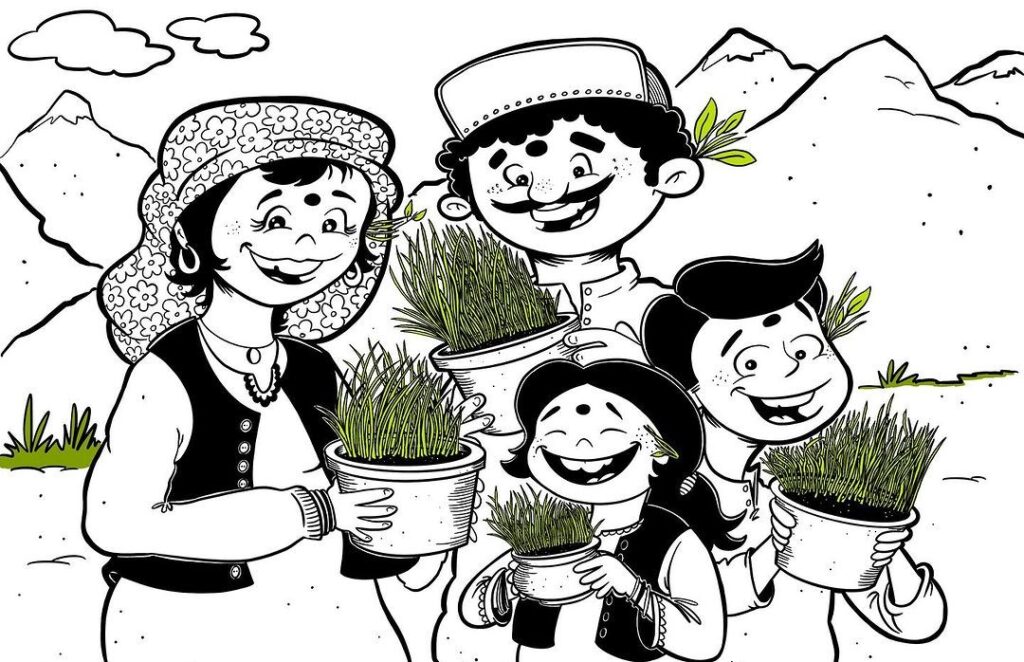Uttarakhand: Goswami Ganesh Dutt S.V.M. Celebrates Harela with Tree Planting
In a heartwarming display of environmental stewardship and cultural pride, Goswami Ganesh Dutt Saraswati Vidya Mandir celebrated the traditional Harela festival by planting trees.
Harela, a significant festival in Uttarakhand, symbolizes the onset of the monsoon and the renewal of nature. It is traditionally celebrated by planting saplings, emphasizing the community’s deep-rooted connection with the environment. For Goswami Ganesh Dutt Saraswati Vidya Mandir, which recently gained affiliation with the Central Board of Secondary Education (CBSE), this year’s Harela took on added significance as students and faculty came together to plant a variety of native trees.

“We believe in imparting education that nurtures not only academic excellence but also a sense of responsibility towards our environment and culture,” remarked Principal Devi Prasad Nautiyal.
Students, teachers, and staff members participated in the tree-planting drive. The plantation included species like oak, rhododendron, and deodar, which are not only indigenous to Uttarakhand but also crucial for maintaining the region’s ecological balance.

The school aims to blend modern teaching methodologies with age-old traditions, fostering holistic development among its students.
The school’s NSS students played a pivotal role in organizing and executing the tree-planting drive. Their active involvement underscored their commitment to community service and environmental sustainability.
Celebrating Harela with joy and happiness


“We are delighted to contribute to our school’s efforts in making a greener, more sustainable environment,” remarked Dwarika Awasthi, Programme Officer. “Planting these trees not only benefits our ecosystem but also connects us with the rich cultural heritage of Uttarakhand.”
The ceremony was marked by enthusiasm and unity as students and teachers worked together to plant saplings.
Each tree planted symbolized a step towards a cleaner, healthier environment and a nod to the centuries-old traditions of Harela.




